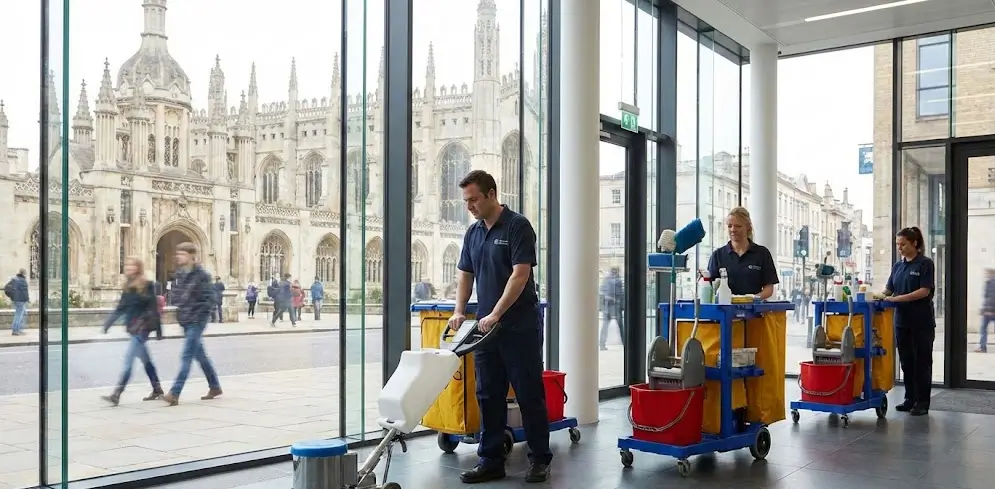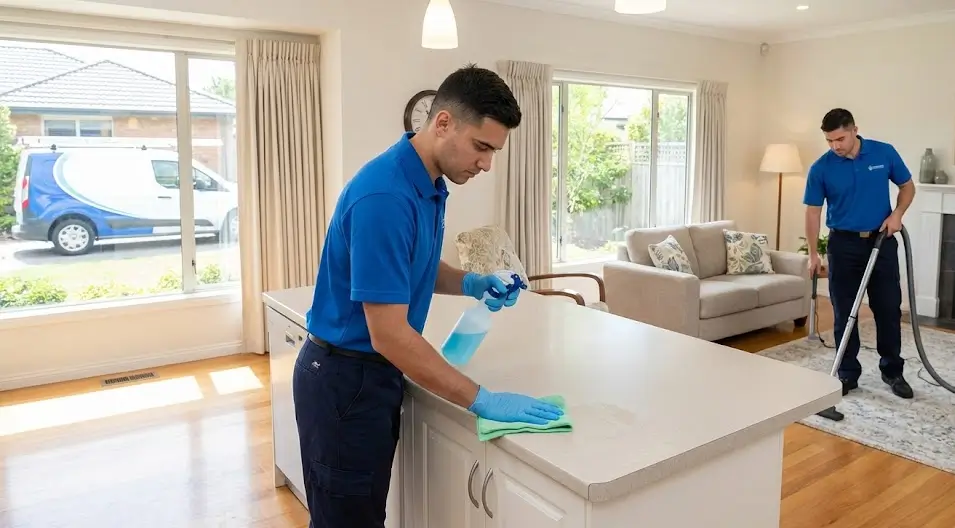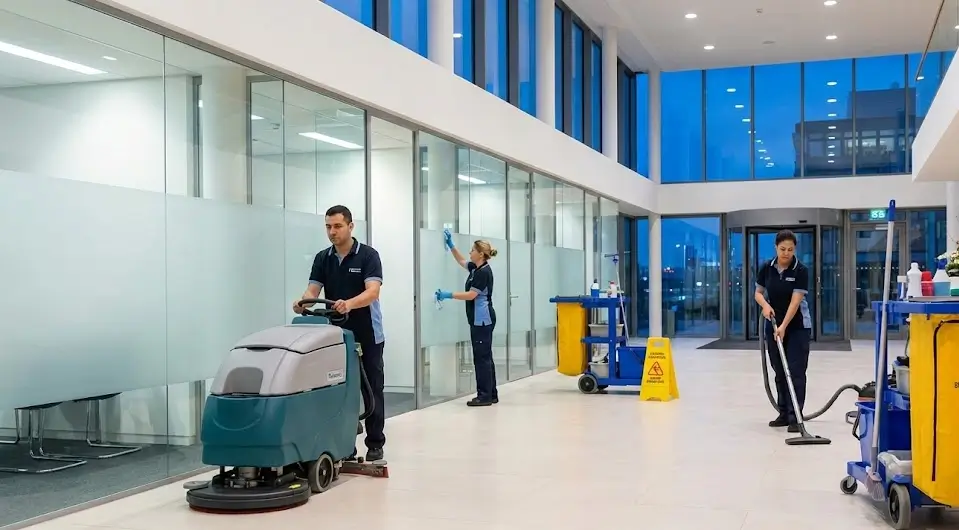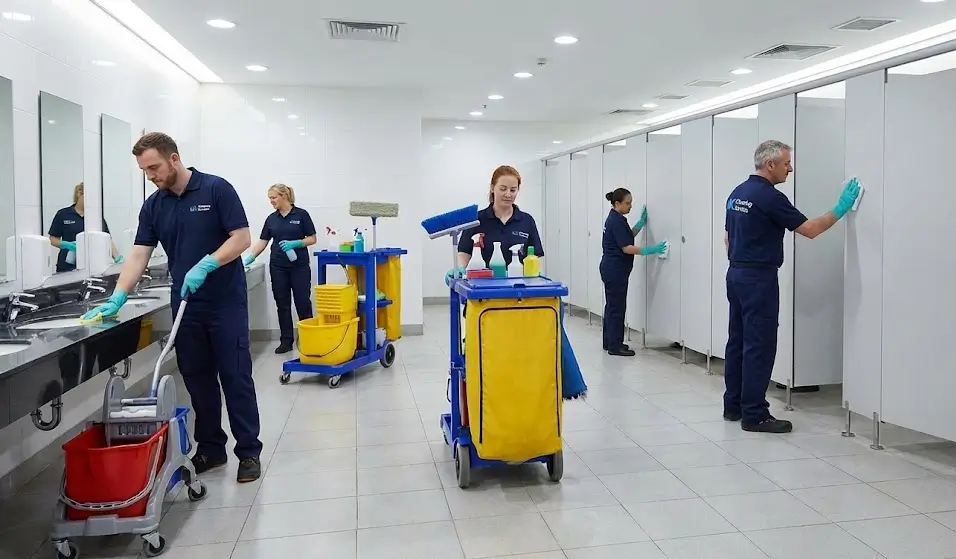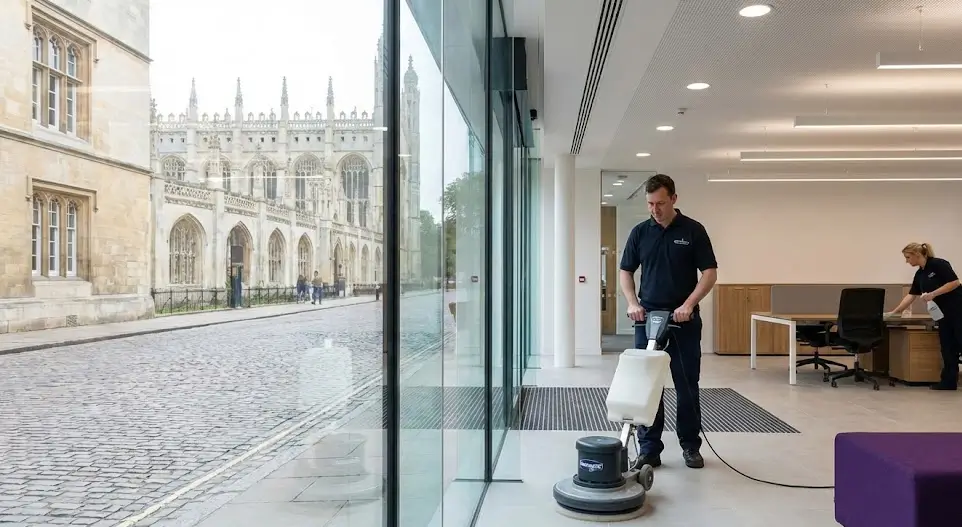
Not just for appearances but also for preserving staff health and well-being, clean and hygienic office surroundings are essential. Workplace cleanliness has never been more crucial in Bedford, UK, where local companies flourish on output to avoid staff sick days. Frequent sick leave disrupts workflow, impacts morale, and costs businesses time and money. According to the Office for National Statistics, UK workers took an average of 4.3 sick days per year in recent data, which was attributed to preventable illnesses like colds, flu, and stomach bugs. While hiring professional cleaners is essential, daily habits within the office environment can make all the difference.
This guide will explore seven actionable, easy-to-implement daily cleaning habits that promote workplace hygiene and reduce sick leave. With practical tips and local relevance for Bedford-based offices, these habits can help protect your team and keep your business running smoothly.
High-touch areas such as door handles, keyboards, phones, lift buttons, and shared desks are breeding grounds for germs. Bacteria and viruses can linger on these surfaces for hours, making them key contributors to workplace illnesses.
Make it a daily priority to disinfect high-touch surfaces, ideally multiple times daily. Provide disinfectant wipes for employees to clean personal items and ensure professional cleaners focus on communal touchpoints. One of the easiest workplace hygienic advice to help stop the spread of disease is to include this habit in daily life.
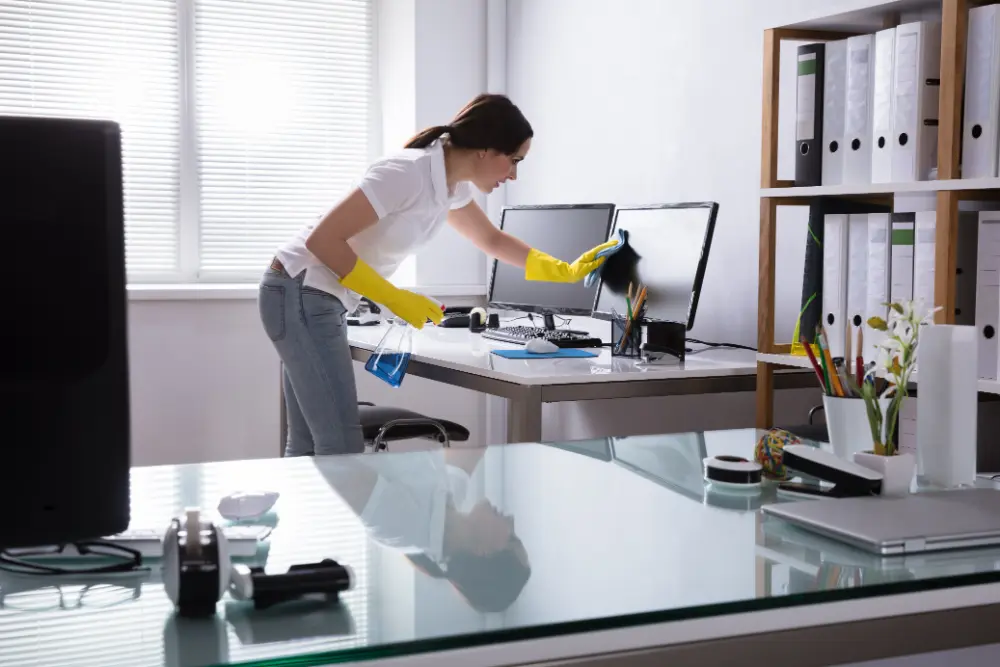
Pro Tip: Create an office cleaning checklist
Incorporate reminders into your team’s daily or weekly checklist so everyone is involved. You can also print and display simple cleaning reminders in visible areas.
Hand hygiene is a frontline defence against sickness. To reinforce good hygiene practices, place hand sanitiser dispensers at key workplace locations, such as entrances, meeting rooms, kitchens, and break areas.
Ensure dispensers are checked and restocked every day. Encourage staff to use hand sanitiser before meetings or communal activities. During flu seasons or times of higher risk, consider signage to remind employees of the importance of sanitising hands regularly. This simple step supports workplace cleaning to prevent employee sick days and creates a culture of shared responsibility.
Local insight:
Placing dispensers near entry doors and lift areas in busy Bedford office buildings can help reduce germ transmission during high-traffic periods.
A cluttered desk attracts dust, bacteria, and allergens, making it harder to maintain hygiene. Encourage employees to tidy their desks by removing unnecessary items and cleaning surfaces daily. Provide antibacterial wipes for personal use.
Consider implementing a weekly ‘Clean Desk Day’ where employees take a few extra minutes to clean keyboards, monitors, and drawers. This habit contributes to hygiene and improves mental clarity and focus—a clutter-free space often equals a clutter-free mind.
Desk-cleaning checklist for employees:
Full rubbish bins can quickly become sources of bacteria, odours, and pests, especially in shared kitchen and break areas. Assign a daily routine for emptying bins throughout the office.
Encourage employees to dispose of food waste responsibly and use bins with lids. Professional cleaners should also disinfect bin interiors regularly. Consistently practising this habit will contribute to a fresh and healthy office environment.
Kitchen bin tip:
Encourage recycling by providing separate, well-labelled bins. Clean bins regularly with warm water and disinfectant to avoid bad smells and bacteria build-up.
Good air circulation helps remove stale air, allergens, and airborne germs contributing to sickness. Even during the colder months, opening windows for short periods is beneficial for refreshing the air.
If your workplace relies on HVAC systems, ensure they are serviced and filters regularly replaced. Consider adding indoor plants known for improving air quality. Clean air significantly contributes to workplace cleaning to prevent employee sick days.
Best air-purifying plants for offices:
The communal kitchen and break areas are notorious hotspots for bacteria. Daily practices like wiping down surfaces, emptying the dishwasher, and cleaning out expired items from the fridge help keep these areas hygienic.
Encourage a ‘clean as you go’ policy and provide easily accessible cleaning supplies. Post reminders in these areas to encourage everyone to do their part. Clean kitchen spaces prevent food contamination and reduce the spread of illnesses.
Suggested daily kitchen tasks:
Hand sanitiser is helpful, but nothing beats thorough handwashing with soap and warm water. Display clear signage in bathrooms and kitchen areas that explains proper handwashing techniques.
Ensure soap dispensers, paper towels, and hand dryers are checked and replenished daily. Washroom cleaning should include not only visible surfaces but also high-touch points such as door handles and faucets to maintain hygiene. Regular and thorough expert washroom cleaning helps reduce the spread of germs and bacteria, contributing to a healthier workplace. Hand hygiene is at the core of cleaning to prevent employee sick days and should be reinforced in all communal spaces.
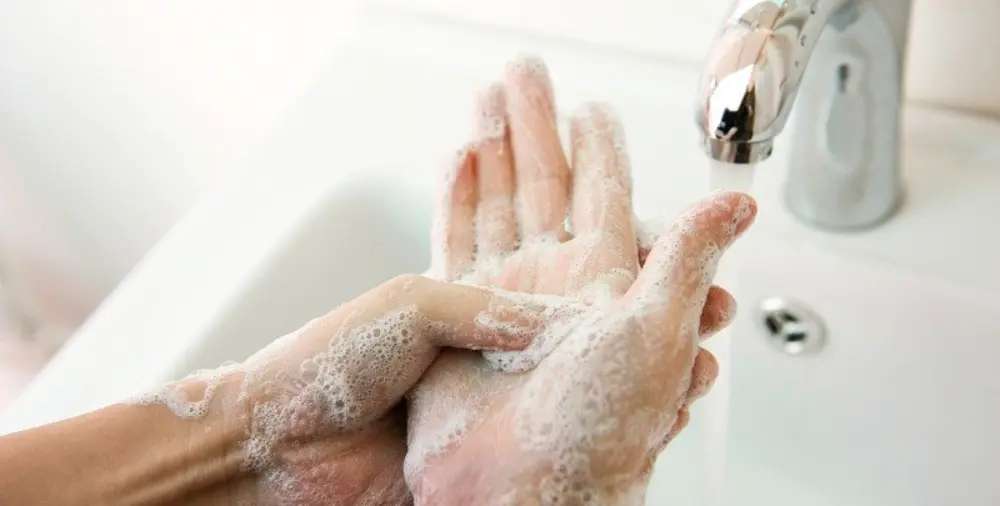
How to encourage handwashing:
One Bedford-based accounting firm reduced employee sick leave by 20% within six months after implementing daily cleaning habits combined with weekly professional cleaning from LZH Cleaning Services. Employees reported feeling safer and more comfortable, and productivity increased.
How often should high-touch surfaces be cleaned in an office? In crowded shared areas especially, they should be cleaned at least once daily and more often. This helps staff members stay healthier and lessens the transmission of bacteria.
Why is office ventilation important? Good ventilation eliminates stale air and lowers airborne pollutants, improving indoor air quality and lowering the chance of spreading diseases among workers.
Can daily habits reduce sick days? Yes. Small daily actions such as wiping surfaces, sanitising hands, and decluttering desks collectively reduce bacteria and viruses in the office environment.
How can I encourage employees to maintain office cleanliness? Lead by example, provide easy access to cleaning supplies, use signage as reminders, and foster a team culture that values shared responsibility for cleanliness.
Is professional cleaning still necessary?Absolutely. Daily habits help maintain cleanliness between professional visits, but periodic deep cleaning ensures areas that aren’t visible or frequently cleaned are also sanitised. For reliable results, many businesses rely on professional office cleaners Bedford to deliver thorough and hygienic workspaces.
While daily habits significantly impact, professional support is essential to maintaining high standards. Cleaning the workplace to prevent employee sick days is a team effort that benefits from expert attention.
If you’re based in Bedford and want to ensure a spotless, healthy workplace, contact LZH Cleaning Services. Our experienced team provides tailored office cleaning solutions that complement your daily efforts and help reduce sick leave. Call us today for a free consultation and quote!

